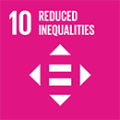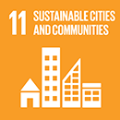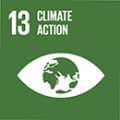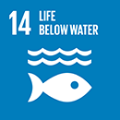Mangrove forests that occur on coastal plains are among the most efficient ecosystems in the world at sequestering carbon in living biomass and underlying sediments. This project aims to conduct interdisciplinary research about the challenges and opportunities for mangrove carbon sequestration in different spatial and socio-economic settings globally.
Blue Carbon
Blue carbon refers to the carbon sequestered by marine ecosystems. Viable mechanisms are needed for accounting for mangrove blue carbon in order to offset these against carbon emissions in national greenhouse accounts. Research is required to develop a verified carbon standard that will enable certificates to be generated based on mangrove biomass, enabling them to be traded in voluntary markets and in carbon sensitive economies.
This project currently focuses on Australia, Vietnam and Brazil, with scope to expand across the Asia-Pacific region. The focus on Australia, Vietnam and Brazil aims to capture a broad range of social, cultural, environmental, developmental and economic conditions that influence the effectiveness of operationalising mangrove blue carbon.
Blue Carbon Futures
- UOW-led team wins Eureka Prize for Environmental Research, UOW Media (28 August 2019)
- A Eureka moment for UOW-led research team, UOW Media (31 July 2019)
- Rising seas allow coastal wetlands to store more carbon, The Conversation (6 March 2019)
- Rising seas allow coastal wetlands to store more carbon, Business Daily (6 March 2019)
- Coastal Wetlands Crank Up Carbon Storage as Seas Rise (6 March 2019)
- Study led by UOW researcher finds what can mitigate climate change impacts, Illawarra Mercury (7 March 2019)
- Las humedales almacenan más carbono a medida que sube el nivel del mar (6 March 2019)
- As sea level rises, wetlands crank up their carbon storage, Phys.org (6 March 2019)
- Former Chain Valley Bay colliery site provides fertile hunting ground for sea level rise research team, Newcastle Herald (7 March 2019)
- Collaboration publishes landmark blue carbon study, ANSTO (7 March 2019)
- Coastal wetlands capture more carbon as seas rise, Envirotec (7 March 2019)
- Cambiamenti climatici: nelle zone umide costiere la difesa naturale contro l’inquinamento atmosferico (7 March 2019)
- Riscaldamento globale, l'aumento delle zone umide può essere positivo (7 March 2019)
- As sea level rises, wetlands crank up their carbon storage, Terra Daily (7 March 2019)
- Con l’innalzamento (moderato) del livello del mare, le zone umide costiere catturano più carbonio (7 March 2019)
- Las humedales almacenan más carbono a medida que sube el nivel del mar (7 March 2019)
- Istraživanje oktrilo novi način za ublažavanje klimatskih promjena (7 March 2019)
- Riscaldamento globale: il ruolo fondamentale del fango palustre, FocusTech (8 March 2019)
- Mokradła ochronią nas przed zmianami klimatycznymi, InteriaTech (9 March 2019)
- Coastal wetlands store more carbon with rise in sea levels, Devdiscourse (7 March 2019)
- Coastal wetlands capture more carbon as seas rise, Phys.org (8 March 2019)
- Mangroves better than storing carbon than rainforests, ABC (18 May 2017)
- Rising seas threaten to drown important mangrove forests, unless we intervene, The Conversation (15 October 2015)
- The vulnerability of Indo-Pacific mangrove forests to sea-level rise, Nature (14 October 2015)
The team
This research project recognises that operationalising mangrove blue carbon restoration, conservation, and management as an activity that offsets carbon emissions is complex and requires interdisciplinary approaches. The research team, led by Professor Kerrylee Rogers, includes researchers and experts in blue carbon biophysical science, law and policy, social and cultural context, and accounting and finance; and aims to make a research contribution towards understanding the challenges and opportunities for mangrove blue carbon to be included within market-based climate policy and for mangrove blue carbon measurement methodologies to be applicable within nations and across national jurisdictions.
Professor Kerrylee Rogers is an environmental scientist and ARC Future Fellow in the Faculty of Science, Medicine and Health who specialises in understanding the contribution of coastal ecosystems to climate change adaptation and mitigation. Her research focuses on the vulnerability of coastal carbon sinks; with a particular focus on mangrove and saltmarsh carbon sequestration and resilience to sea-level rise in Australia and Vietnam. She recently co-authored a paper in Nature titled The vulnerability Indo-Pacific mangrove forests to sea-level rise.
Dr Jennifer Atchison is Senior Lecturer and course director in Faculty of the Arts, Social Sciences and Humanities. As an interdisciplinary researcher, she has expertise in providing innovative perspectives on the human dimensions of global environmental change. She has published on Indigenous plant management, invasive species policy, farming and climate change and human nature relationships. Her current research interests include mapping the social and cultural dimensions of rapid vegetation change in Northern Australia.
Dr Olivia Dun is an Associate Research Fellow in the Faculty of the Arts, Social Sciences and Humanities. She is a human geographer with a background in environmental science, migration studies and international development. She researches social aspects of environmental issues, including how social and cultural relationships with nature can shape and influence environmental protection and agriculture. Her research focuses on the impact of environmental and agricultural change in coastal areas of the Mekong Delta, Vietnam, and the ‘PetaJakarta’ project, which is assessing the role of social media for civic co-management during monsoon flooding in Jakarta, Indonesia.”
Associate Professor Quentin Hanich leads to Fisheries Governance Research Program at the Australian National Centre for Ocean resources and Security (ANCORS). He has extensive project management experience in fisheries governance, marine conservation and fisheries and management development, and has worked widely in the Asia-Pacific region. Current research projects focus on equitable and community based approaches to coastal and marine resource management.
Associate Professor Mary Kaidonis is an academic in the Faculty of Business and Law with 30 years’ experience in public practice and industry. Her research is informed by interdisciplinary perspectives to understand accounting in its environmental, organisational and social contexts. Recent research topics include sustainability and accounting, carbon pricing, rehabilitation of mining sites, mining in developing countries.
Professor Robin Warner is Professor at the Australian National Centre for Ocean Resources and Security (ANCORS) University of Wollongong. She is an international lawyer with particular expertise in law and policy frameworks for climate change mitigation activities based on the ocean and conservation of marine biodiversity. She was lead editor (with Professor Clive Schofield) of Climate Change and the Oceans. Gauging the Legal and Policy Currents in the Asia Pacific and Beyond (2012) and author of a number of journal articles and book chapters on climate change mitigation activities involving the ocean.
Professor Colin Woodroffe is a coastal geomorphologist in the Faculty of Science, Medicine and Health who has specialised in researching shoreline change on tropical coasts. He has studied mangrove forests in northern Australia, the West Indies, New Zealand, Vietnam and many islands in the Pacific and Indian Oceans. His research includes measuring the biomass and productivity of mangroves and determining the sedimentation rates within estuaries and coastal plains. He was a lead author in the 2007 IPCC Fourth Assessment report and has focused on the vulnerability of coastal ecosystems to sea-level rise.



